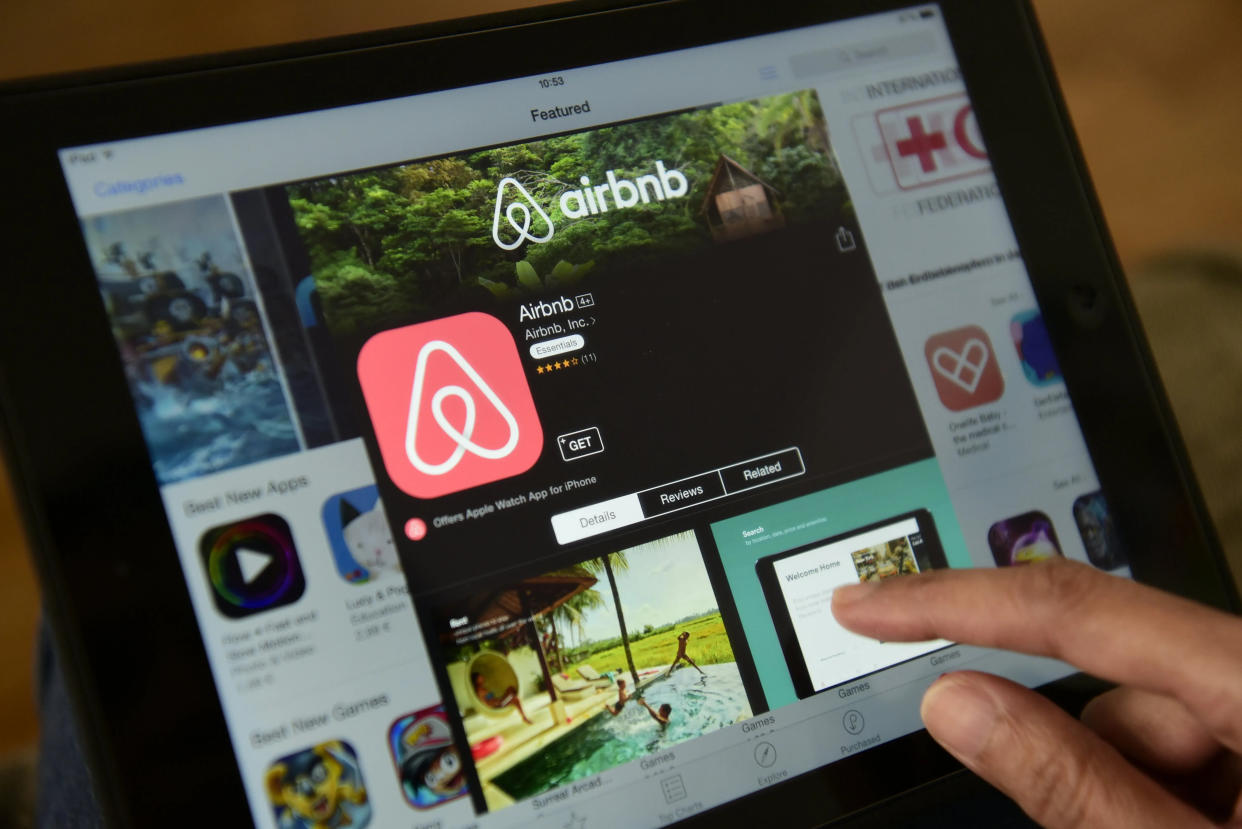Are short-term rentals legal in Phoenix? What you need to know about Airbnbs and more

Phoenix changed how it licenses short-term rental properties in September, adding regulations meant to appease surrounding permanent residents who have complained that the rentals undermine their quality of life.
Vacation rentals through AirBnb, VRBO and other platforms have long been legal in Arizona. After some cities sought to ban them, former Gov. Doug Ducey signed a law in 2016 that required towns to treat short-term rentals the same as other residential long-term rentals.
The state Legislature loosened restrictions placed on cities in 2022, leading to a handful of cities changing their rules to add more protections.
Here's what you need to know.
Are short-term rentals legal in Phoenix? Do I need a license?
Yes, they are legal. But to operate one, you need to:
Obtain a city permit.
Obtain a transaction privilege license from the Arizona Department of Revenue to pay sales taxes.
Register with the Maricopa County Assessor's Office.
How many short-term rentals are in Phoenix?
The city had 3,958 registered short-term rentals as of September 2023. Most residents believe that is an undercount.
What is considered a short-term rental?
Phoenix and most other Arizona cities consider a short-term rental a place where someone rents for 30 days or less.
What are the rules surrounding how Airbnb can be used in Phoenix?
State law in Arizona forbids cities from treating short-term rentals differently than long-term residential rentals. However, cities can enact a permitting process, which includes specific fees, rules and penalties for violations.
Phoenix's permitting rules prohibit the following uses:
Nonresidential use.
Holding special events that the city requires a permit or license for.
Operating a retail business, restaurant, banquet hall or similar use.
Housing registered sex offenders or allowing registered sex offenders to occupy the rental.
Operating a sober living home.
Selling alcohol, illegal drugs or pornography.
Operating a nude or topless dancing business.
Obscenity.
Adult-oriented business.
An event center.
Use or occupy any portion of an accessory dwelling unit.
What are the rules for operating an Airbnb or VRBO in Phoenix?
Short-term rental operations must apply for and receive a permit and license to operate ($250 fee). The city must approve or deny the applications within seven days.
Short-term rental owners must display their permits within 10 feet of the primary entrance of the rental.
Short-term rental platforms must ensure properties are properly permitted before they can be listed on the platform. Failure to comply could result in a daily $2,500 fine for platforms like Airbnb or VRBO.
Short-term rental owners must undergo a criminal background check to ensure they are not convicted felons or sex offenders.
Short-term rental owners must conduct sex offender checks on renters.
Short-term rental owners must send notices to neighboring properties, homeowners associations and neighborhood associations within 600 feet of their intent to operate.
Short-term rental owners can appeal city rejections, nonrenewals or suspensions of licenses.
Short-term rental owners must carry $500,000 liability insurance.
Will I be notified if a short-term rental pops up near me?
New rules Phoenix City Council passed in 2023 require short-term rental operators to notify surrounding properties and nearby homeowners associations or neighborhood associations (within 600 feet) of the intent to operate.
The notice is supposed to resemble the following:
Dear [Name],
This letter is to inform you the property owner at (address) plans to make the property available for short-term rental use. The permit number for the short-term rental is (XXXX). The 24-hour emergency point of contact for the property is (Name). He/she can be reached at (phone number) and (email). If you have any questions or concerns, please contact (name of the property owner or agent) at (phone number and email).
What happens if short-term rental owners break the rules?
Phoenix can charge a fee up to $1,000 per month for property owners who fail to register their short-term rentals.
The city can also charge:
a $500 civil penalty for the first violation committed by a short-term rental property.
a $1,000 penalty for the second violation within 12 months.
a $3,500 penalty for the third and subsequent violations within 12 months.
Phoenix can suspend short-term rental permits if the owner has three violations within 12 months.
Why do Arizona cities need to regulate short-term rentals?
Arizona residents have spoken out forcefully against the burdens of short-term rentals.
In Sedona, residents have complained that short-term rentals are taking over an already short supply of housing, exacerbating home affordability and availability issues.
In Phoenix and Tempe, short-term rentals have led to disruptive party houses that in some cases ended in violence.
In Scottsdale, short-term rentals make up as much as a third of "vacant" homes in Scottsdale, according to a recent study on that city's tight housing market.
To be sure, there are residents who advocate for supporting short-term rentals. People who rent their properties through sites like AirBnb or Vrbo testified at the state Capitol in 2020 about the positive financial impact on their families.
More: Valley cities impose new rules on short-term rentals, Airbnbs
Reporter Taylor Seely covers Phoenix for The Arizona Republic / azcentral.com. Reach her at tseely@arizonarepublic.com or by phone at 480-476-6116.
Reporting from Sam Kmack, who covers Scottsdale and Tempe, was included in this report.
This article originally appeared on Arizona Republic: Are short-term rentals legal in Phoenix? What to know about Airbnb laws

